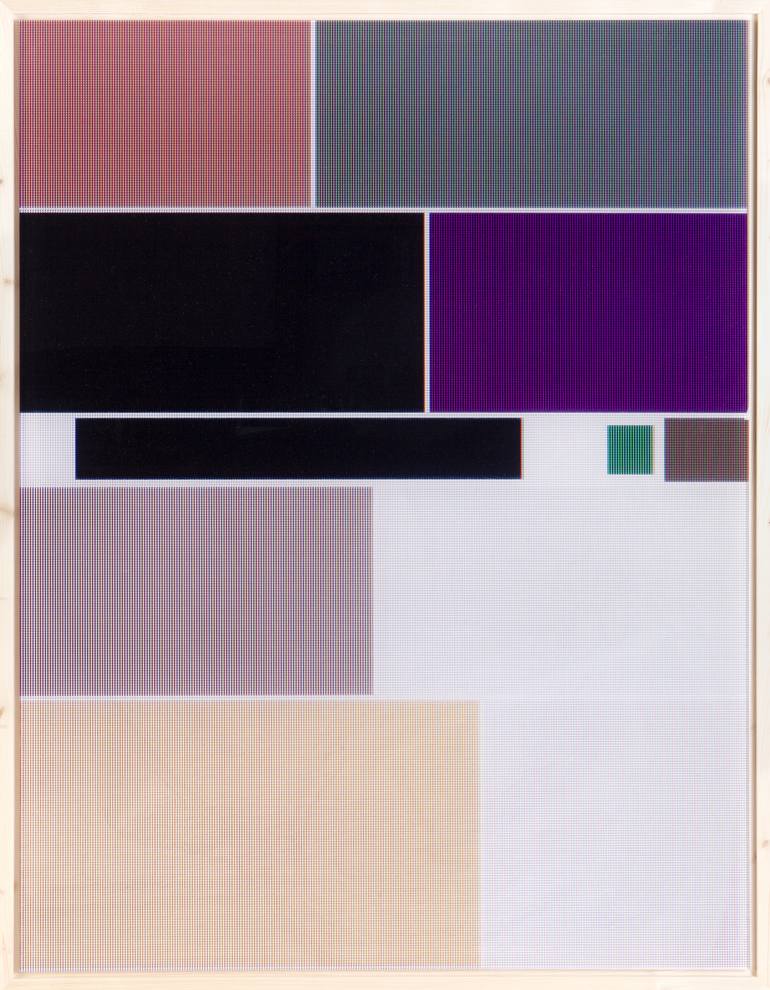







662 Views
21
View In My Room
Photography, C-Type on Glass
Size: 31.5 W x 41 H x 1.8 D in
Ships in a Box
662 Views
21
Artist Recognition

Artist featured in a collection
ABOUT THE ARTWORK
DETAILS AND DIMENSIONS
SHIPPING AND RETURNS
Screen photo: UVprint under PlexiGlass. Frammed. This "abstract photography" reflects the problems of today's world, raises questions of origin and creates very contemporary art. Inflation of visual information - title of art is based on the google search phrase by which it was created. Orignal ...
Year Created:
2016
Subject:
Mediums:
Photography, C-Type on Glass
Rarity:
Limited Edition of 2
Size:
31.5 W x 41 H x 1.8 D in
Ready to Hang:
Not Applicable
Frame:
Other
Authenticity:
Certificate is Included
Packaging:
Ships in a Box
Delivery Cost:
Shipping is included in price.
Delivery Time:
Typically 5-7 business days for domestic shipments, 10-14 business days for international shipments.
Returns:
The purchase of photography and limited edition artworks as shipped by the artist is final sale.
Handling:
Ships in a box. Artists are responsible for packaging and adhering to Saatchi Art’s packaging guidelines.
Ships From:
Czech Republic.
Need more information?
Need more information?
Jan Dyntera
Czech Republic
Some questions/answers to consider: - What is the subject matter of my work? I focused on the problems of intertwining the digital and analogue worlds, fascinated by the boom of visual information, display errors, data loss, and privacy. Since 2015, I've been working with Google searches and added contemporary themes to my work. - What is my work about? I've been long time preoccupied with new media and photography, and perceives it as a sovereign aesthetic visual form and at the same time examines how to extend its expressive possibilities. The games with flat geometry in photography, boldly competing or complementing the world of traditional painting, represent however only one layer of my creative process. The other, in fact the original, focus in my work is on the visual movement in the depths of the digital space with all its limitations, world of media mistakes created by sophisticated graphic imaging or search systems. - How do I make my work? According to the traditional methods of photography, printing and painting. - Where do I find the images I use? All around, from what we search for, what we care about on the network. I only use the world and the people around me. - How do I want the audience to respond to my work? To think and look at the current problems with distance and in the confrontation of my thoughts, to look at the visual side of things and say, this is pure and yet I see the story. - How does my work compare to historical or contemporary artwork? My work is react on my way to contemporary problems in focus on traditional paintings. I use minimalist colour “errors“ to construct a new reality that may be linked to the “original“ artwork. A similar situation occurred with the analogue trend in visual abstract painting in the last decade of the last century. Importantly, the collection is not supposed to represent a battle between the two media - painting and photography. Its focus is on expanding the possibilities of abstract aesthetic imagery and as such it also conveys a slight warning against the flood of photographs and equally the endless need for an aesthetic grasp of the world surrounding us. ______________________________________ Jan Dyntera Contemporary artist - lives and works in Prague. He studied photography, video and new media at ITF SLU Opava and reproduction graphics at the School of Fine Arts in Prague.
Artist Recognition

Artist featured by Saatchi Art in a collection
Why Saatchi Art?
Thousands of
5-Star Reviews
We deliver world-class customer service to all of our art buyers.
Global Selection of Original Art
Explore an unparalleled artwork selection from around the world.
Satisfaction Guaranteed
Our 14-day satisfaction guarantee allows you to buy with confidence.
Support Emerging Artists
We pay our artists more on every sale than other galleries.
